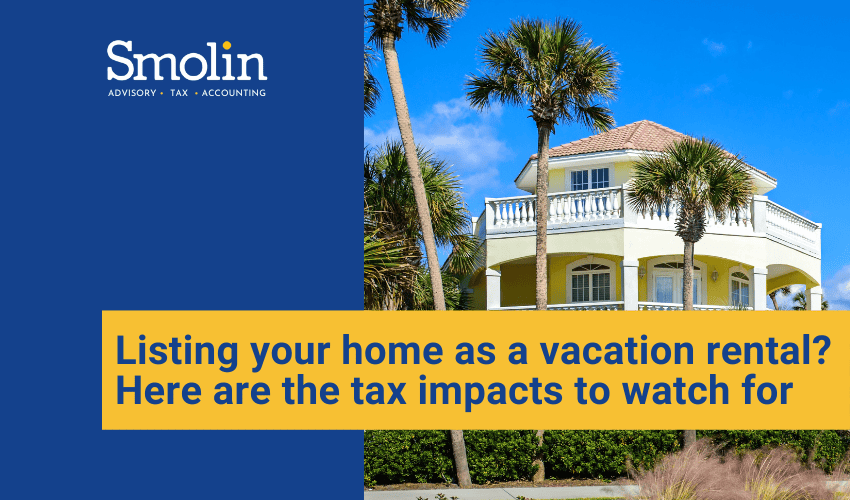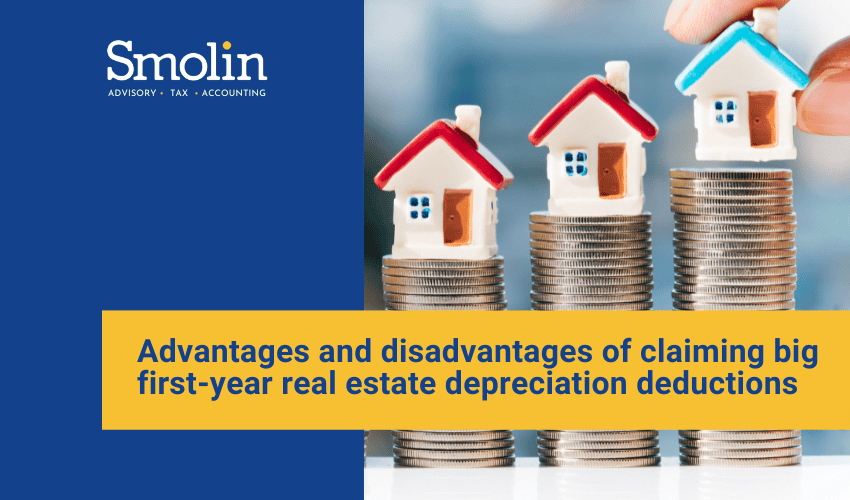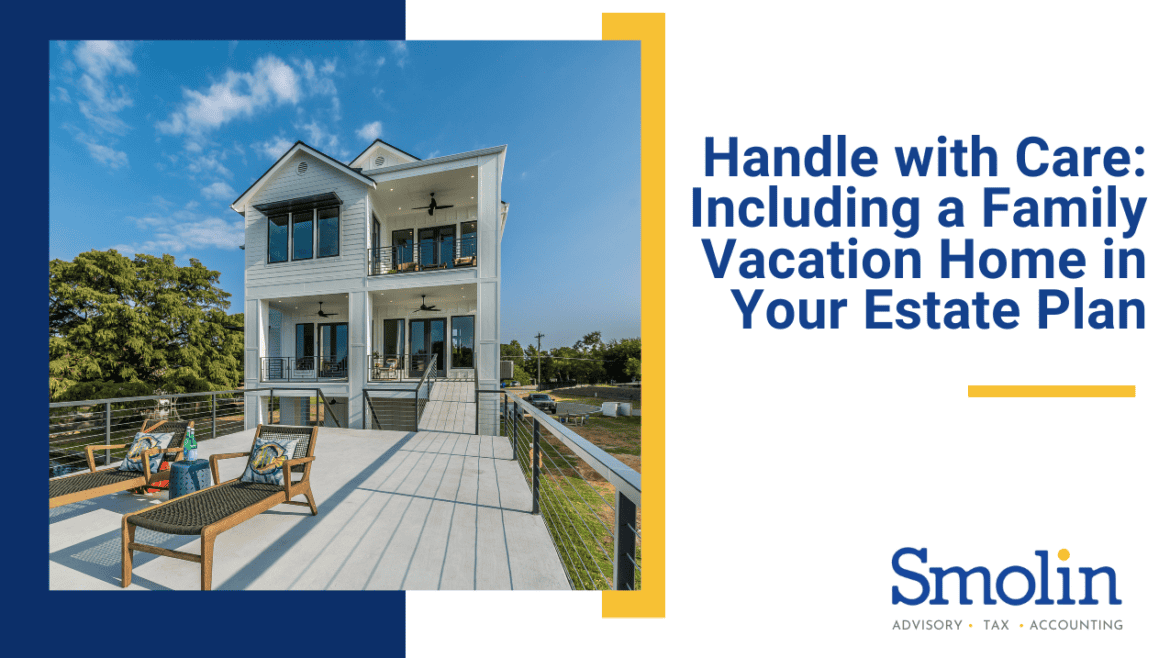Whether you own a lakefront cottage, vacation beach home, or ski chalet, renting out your property for part of the year can have significant tax impacts.
Here’s what you need to know.
Your level of personal use impacts your taxes
The number of days the property is rented has a direct impact on your taxes.
However, there are certain scenarios that don’t count towards this total since your official “personal use” of the property includes more than your own vacations. It also includes vacation use by your relatives—even if you charge them market-rate rent. It also includes use by nonrelatives if you don’t charge them a market rate rent.
This is important because if you rent the property out for less than 15 days during the year, it’s not treated as “rental property” at all.
Under these circumstances, you could see significant tax benefits since even a significant amount of rental income received won’t be included in your income for tax purposes. However, you also won’t be able to deduct operating costs or depreciation﹘only property taxes and mortgage interest.
(Mortgage interest is deductible on your principal residence and one other home, subject to certain limits.)
If you do rent the property out for nonpersonal use for more than 14 days, the rent received must be included in your income and you will be able to deduct operating costs and depreciation (subject to several rules). To do this, you’ll need to allocate expenses between rental days and personal use days.
For example, if the house is rented for 90 days and used personally for 30 days, then 75% of the use is rental (90 days out of 120 total days). You would allocate 75% of your maintenance, utilities, insurance, etc. costs to rental. Additionally, you would allocate 75% of your depreciation allowance, interest and taxes for the property to rental. The personal use portion of taxes is separately deductible. If the personal use exceeds the greater of 14 days or 10% of the rental days, the personal use portion of interest on a second home will also be deductible. In this case, though, depreciation on the personal use portion isn’t allowed.
Income and expenses
When rental income is greater than allocable deductions, you’ll need to report both in order to determine how much rental income you should add to your other income for tax purposes.
When you may claim a loss
If the income is lower than the expenses and you don’t use the property personally for more than 14 days or 10% total percent of rental days, you could be able to claim a rental loss.
When calculating the loss, though, you must allocate your expenses between the rental and personal portions. It’s also important to keep in mind that the loss will be considered “passive” and may be limited under the passive loss rules.
When you cannot claim a loss
If rental income is higher than expenses or if the house is used personally for 10% of rental days or more than 14 days total (whichever is greater), you won’t be able to claim a loss. However, you’ll still be able to use your deductions to balance out rental income. Any unused deductions will be carried forward. This could be usable in future years.
While there are still multiple deductions up to the amount of rental income you can claim, you must use them in this order:
- Interest and taxes
- Operating costs
- Depreciation
Questions? Ask Smolin
Tax rules for vacation rentals can be complicated. If you plan to rent out your property, it pays to plan ahead. Contact your Smolin accountant to learn how you may be able to maximize deductions in your unique situation.



